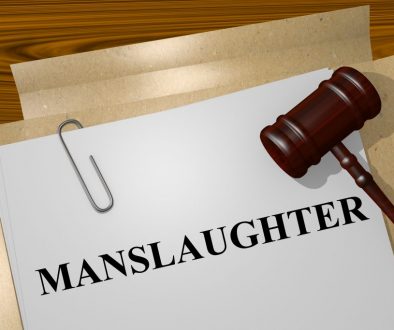AGGRAVATED VS SIMPLE ASSAULT- New Jersey – Protected Class
The recent Wildwood, New Jersey, incident involving Wildwood Police and 20 year old Emily Weinman has led to a number of questions regarding the difference between aggravated assault and simple assault in New Jersey. Like Pennsylvania, New Jersey doesn’t treat all incidences of physical violence the same, especially those involving members of law enforcement, EMS, and other government officials (including teachers).
Simple Assault in New Jersey
In New Jersey a person commits simple assault under 2C: 12-1 (a) if he or she attempts to cause or purposely, knowingly, recklessly causes bodily injury to another or negligently causes bodily injury to another with a deadly weapon. A person also commits simple assault in New Jersey under subsection (3) if he or she attempts, by physical menace, to put another under fear by imminent bodily injury.
New Jersey, unlike Pennsylvania, doesn’t classify crimes or offenses as misdemeanors or felonies, but rather as indictable offenses (crimes—1st, 2nd, 3rd, & 4th degrees), disorderly persons, and petty disorderly persons. Simple assault is a disorderly person’s offense (non-indictable) unless it is committed during a fight entered into by mutual consent, in which case it is a petty disorderly offense.
Aggravated Assault in New Jersey
The recent incident in Wildwood has led to criminal charges against Ms. Weinman under subsection b of 2C: 12-1; She is charged with aggravated assault. While aggravated assault in New Jersey, like Pennsylvania, is committed when one attempts to cause serious bodily injury or causes such injury purposely or, under circumstances manifesting extreme indifference to the value of human life, recklessly causes such injuries (subsection 1). Aggravated assault is a crime of the 2nd degree in these situations and a crime of the 3rd degree where a person attempts to cause or purposely causes bodily injury with a deadly weapon or recklessly causes bodily injury with a deadly weapon. Here, aggravated assault is graded as a crime of the 3rd degree. It is a crime of the 4th degree if a person knowingly, under circumstances manifesting extreme indifference to the value of human life, points a firearm at another whether or not the actor believes that the firearm is loaded.
Law Enforcement & Assault in New Jersey (Protected Classes)

New Jersey, like Pennsylvania, a person who commits a simple assault against a member of law enforcement, like the Weinman case, commits an aggravated assault. This means that the state does not need to establish beyond a reasonable doubt serious bodily injury, but only bodily injury. If the officer suffers bodily injury it is a crime of the 3rd degree, otherwise it is a crime of the 4th degree. New Jersey’s criminal code treats police officer’s, volunteer firefighters, EMS, and school employees as protected classes. This means that the Commonwealth doesn’t need to establish serious bodily injury but only bodily injury, which is normally the standard reserved for simple assault, a non-indictable offense.
Remember that in New Jersey there is a substantial difference between an indictable crime versus an offense (disorderly persons and petty disorderly persons). Indictable crimes are what Pennsylvania would define as felony offenses, whereas, disorderly persons and petty disorderly persons are misdemeanor and summary offenses.
Degrees of Criminality in New Jersey
Crimes of the 1st and 2nd degree carry with them the presumption of state incarceration. Examples and maximum punishments in the Garden State are as follows:
- Crimes of the 1st degree—murder, manslaughter, and rape: The court can impose a basic sentence of 10-20 years or as much as 30 years to life for a crime like murder.
- Crimes of the 2nd degree—certain sex crimes, aggravated assault, aggravated arson, burglary, kidnapping, white collar crimes, and certain drug crimes: The court can impose a prison sentence of 5-10 years and a fine of up to $150,000.
- Crimes of the 3rd degree—robbery, possession of a controlled substance, and even some driving under the influence (DUI offenses): The court can impose a prison sentence of 3-5 years and a fine of up to $15,000
- Crimes of the 4th degree—stalking, some robbery offenses, some DUI offenses, assault offenses, and forgery offenses: The court can impose a sentence of up to 18 months in prison and a fine of up to $10,000
For more information on crimes and offenses in New Jersey, keep reading my blog or contact my office.


